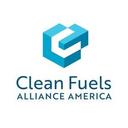American Farm Bureau Federation, National Corn Growers Association, Biotechnology Innovation Organization, American Soybean Association, and American Biogas Council are among more than 500 organizations calling for the passage of a new Farm Bill.
The U.K. Department for Transport on July 22 sent a written statement to the U.K. Parliament confirming that, subject to Parliamentary approval, the agency will introduce a sustainable aviation fuel (SAF) mandate starting on Jan. 1, 2025.
The European Biodiesel Board, representing the European producers of biodiesel (HVO & FAME), has successfully obtained provisional anti-dumping duties in its trade case against Chinese biodiesel flooding the EU market.
Boeing has released guidance to defense customers that company-built military aircraft can operate on sustainable aviation fuel (SAF) at currently approved limits of up to 50% blend with conventional fuel.
BETO selects 13 small businesses to develop innovative biobased products, biomass processing technologies
The U.S. DOE has announced awards for the FY24 Phase I Release 2 of the Small Business Innovative Research and Small Business Technology Transfer program. Thirteen of 229 selected projects focus on bioenergy research and development.
The U.S. EPA on July 18 announced it has reached a settlement with Lupton Petroleum Products Inc., and its affiliate Brad Hall Associates Inc., for violations of the Clean Air Act’s conventional and renewable fuel requirements.
The U.S. Department of Transportation’s Federal Aviation Administration has launched $1 billion fiscal year (FY) 2025 funding opportunity that could help U.S. airports develop infrastructure to increase access to sustainable aviation fuel (SAF).
Evonik has announced the expansion of its sodium methylate production capacity at its Rosario plant, located in the Sante Fé Province in Argentina. With this expansion, the company strengthens its position as a leader in the biofuels industry.
Growth Energy and others filed two intervenor briefs in the U.S. Court of Appeals for the District of Columbia Circuit related to a set of consolidated lawsuits filed by oil industry and environmental petitioners challenging EPA’s RFS “set” rule.
The National Renewable Energy Laboratory has released the seventh in a series of reports documenting the quality of biodiesel from U.S.- and Canadian-based producers that participate in the BQ-9000 program.
Cargill has surpassed the 50% completion milestone in the construction of its new canola facility located in West Regina, Saskatchewan. The new facility will produce canola oil for food and biofuels markets and canola meal for animal feed.
DOE issues notice of intent to fund industrial partnerships across the bioenergy and bioproducts value chain
The DOE has announced its intent to fund partnerships between industry stakeholders and Feedstock-Conversion Interface Consortium researchers. The partnerships will address the cost and risk impacts of feedstock and process variability.
Nearly 2.04 billion RINs were generated under the RFS in June, down from 2.06 billion generated during the same month of last year. Total RIN generation for the first half of 2024 reached 12.07 billion.
The U.S. EPA on July 18 released updated small refinery exemption (SRE) data, reporting that seven new SRE petitions have been filed under the RFS during the past month. A total of 46 SRE petitions are now pending.
Ag groups call on Treasury to include domestic feedstock requirements in 45Z guidance and unbundle climate-smart ag provisions
U.S. farm groups are urging the Biden administration to maximize the benefits of the 45Z clean fuels production tax credit by ensuring only fuels made using domestically produced feedstocks are eligible and improving climate-smart ag provisions.
Benson Hill expands innovation pipeline with advantaged traits for animal feed, soybean oil and biofuels segments
Benson Hill Inc., a seed innovation company, on July 16 shared further advancements in its innovation pipeline to deliver advantaged traits for end users in larger soy markets, including animal feed, soybean oil, and biofuels.
King Charles announced that the U.K. Parliament will soon introduce a bill to support the production of SAF via a revenue support mechanism during his July 17 speech that formally opened a new session of the British Parliament.
The Missouri Agricultural and Small Business Development Authority on July 16 announced applications are available for the Biofuel Infrastructure Incentive Program (BIIP). Applications are due Oct. 15.
On July 17, Clean Fuels Alliance America delivered a formal notice of intent to sue the U.S. EPA for its failure to issue timely 2026 Renewable Fuel Standards. EPA is required to finalize volumes 14 months before the start of the compliance year.
Production capacity of sustainable aviation fuel (SAF) in the U.S. could increase from around 2,000 barrels per day (b/d) to nearly 30,000 b/d in 2024 if all announced capacity additions come on line.
American Airlines consumed 2.7 million gallons of SAF in 2023, according to its 2023 Sustainability Report. While that volume of SAF use was up 4% when compared to 2022, it accounted for less than 1% of total fuel use during the year.
Renewable diesel margins could experience a modest increase this fall, according to CoBank’s latest Quarterly Research Report. If realized, that boost to margins could mitigate softening demand for soybean oil in the biofuel market.
The student teams selected as finalists for AlgaePrize 2023–2025 are working to turn research proposals into results. The teams are making great strides in 15 unique projects that aim to unlock algal energy from a variety of angles.
The USDA maintained its forecast for 2024-’25 soybean oil use in biofuel production in its latest WASDE report, released July 12. The outlook for soybean production was lowered, but the forecast for soybean oil prices was unchanged.
Reps. Ashley Hinson, R-Iowa, and Angie Craig, D-Minn., and 35 of their colleagues on July 10 sent a letter to U.S. EPA Administrator Michael Regan urging the agency to set 2026 RFS RVOs that accurately reflect growth in biobased-diesel production.
The U.S. DOE Bioenergy Technologies Office has released a RFI on renewable propane production technologies and uses to better understand the supply chains for production and uses of renewable propane and other renewable gaseous intermediates.
IATA: South Africa has vast potential for SAF production
The International Air Transport Association has called on South Africa to mobilize its experience, resources, and infrastructure to accelerate the development of sustainable aviation fuel (SAF) production.
Chevron Renewable Energy Group is commissioning an enhancement at its Mason City, Iowa, biodiesel production facility that will include the installation of a solar array. Work on the project is expected to be complete by the end of the year.
A new study shows feedstocks produced within the U.S. are on track to support domestic production of an additional 1.4 billion gallons of renewable diesel and biodiesel, also known as biomass-based diesel (BBD), by 2030.
The European Union Aviation Safety Agency (EASA) is supporting the scale up of sustainable aviation fuels (SAF), via the now operating EU SAF Clearing House, as a critical step forward in reducing aviation emissions.
Advertisement





























